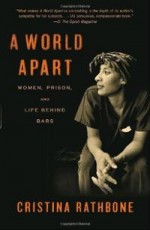Ben Zoma says: Who is wise? One who learns from all people. (Pirkei Avot 4:1)
In the process of applying to rabbinical school, I did something I almost never do: I asked for help.
 My mom says that I came out of the womb saying, “I can do it myself!” (An old copy of that I Can Do It Myself
My mom says that I came out of the womb saying, “I can do it myself!” (An old copy of that I Can Do It Myself Bert and Ernie book was a present one year from my parents.) Indeed, I’ve always been an independent person, preferring to work alone rather than in a group. I don’t think I even had anyone even look at the applications I wrote for college admission. This instinct is in some ways positive: I have a great deal of confidence in my own abilities, and I rarely doubt whether I am up to the task. But it’s also a little ridiculous: Simply put, I don’t know how to do everything that I set out to do, and clearly whatever I am doing would be improved by asking for a little help.
There’s a deeper element to this tendency, though: I have a hard time opening up to people. I am hesitant to make myself vulnerable. I’m scared that those I choose to share with will see my flaws and weaknesses — and won’t like me because of them — and, somewhat obviously, that I do need help. And I’m scared that if I ask for help, I’ll get criticism that I won’t be able to handle.
These truths do make my choice to start a blog somewhat mystifying. What am I doing in this space but bearing my soul? But I started this blog more for myself (writing is cheap therapy!), and I don’t expect to gain any kind of sizeable readership. Plus, I feel less exposed just sending my thoughts into the internets.
I don’t know what exactly made me decide to do things differently this time around. Maybe it was my first school visit, when an admissions officer said, “We’re here to help you through the admissions process.” I remember thinking that this was a bit of a revelation, although I’m not sure why I assumed the process would be adversarial. But I did decide to seek help.
So far I’ve visited four schools, met with 11 D.C.-area rabbis (and have appointments with three more), and spoken with at least a dozen current students, as well as admissions deans at all four schools. All of that went well — and has been helpful to boot. Meeting with rabbis helped me to work on my “why I want to be a rabbi” speech, and I got to hear what they liked and what they didn’t like about their alma maters, as well as what they wish they had known before starting rabbinical school and a career in the rabbinate. (Though, I recently realized, with some amazement, that I haven’t asked anyone I’ve met with, “Why did you become a rabbi?” I should probably start doing so.)
A little tougher for me has been sharing my personal statement with others. But I did it. So far I’ve asked seven people to look at it, and I’ve been gratified by the responses. Of course, I have to admit that it’s been easier since the feedback has been universally positive. But everyone has had suggestions for improvement, and my essay is definitely the better for them.
This experience has been an exercise in humility, which is undoubtedly good for me. Continued practice in this area will be good for me in my rabbinate, and in life.














Leave a comment